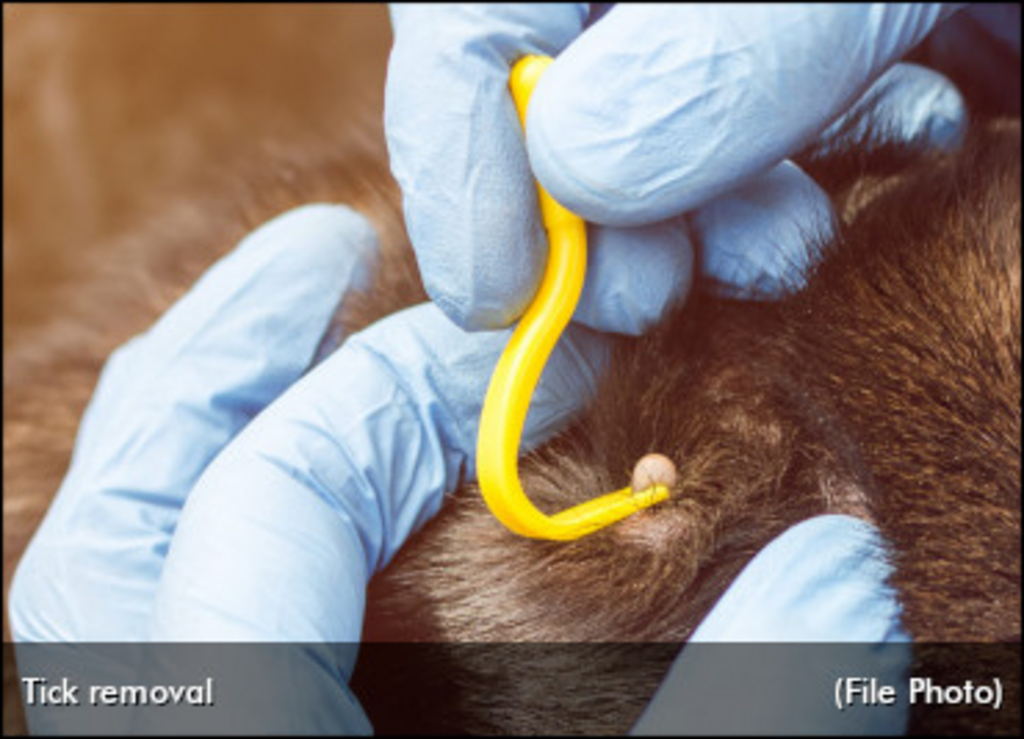
 Both people and their animals have been encountering more ticks and there is a real concern when it comes to the possibilities of contracting Lyme disease.
Both people and their animals have been encountering more ticks and there is a real concern when it comes to the possibilities of contracting Lyme disease.
Dr. Luis Arroyo, researcher at the Ontario Veterinary College was involved in a study on the growing numbers of ticks in southeastern Canada and the risk factors to horses.
In a five minute interview, Arroyo answers some of horse owners top questions on removing, identifying and reducing risk of infections from ticks:
-
Why are we seeing more ticks on our horses lately?
-
What should you do if you find a tick on your horse?
-
Prevention tips?
Arroyo dispels some of the myths for what not to do when removing a tick, such as: using lighter, petroleum or baby oil. He provides correct tips on how to remove the tick by gently easing it out. No twisting or squishing which may cause the tick to further embed its mouth parts and increase the risk of disease transmission! Finding the tick early and removing it right away also reduces the risk, so daily checks when grooming are very important.
Next, pop the tick into a bottle to send to your veterinarian who can identify if the tick is of a species of concern. There is also an app — ETick — for photo submissions to identify what type of tick you just removed from your horse and if it is one that may harbour the Lyme Disease bacterium.
Keeping the grass around the farm trimmed and avoiding straying from the trail and into tall grass when out hacking were just some of the tips shared in the podcast along with the application of spray-on products.
According to the study Arroyo was involved in, the expansion of black legged tick populations poses an ongoing risk for horses.
Other articles you may be interested in reading:
» Lyme Disease – How to protect you and your pet this summer (includes symptoms of Lyme Disease) – From the College of Veterinarians of Ontario
» Equine Guelph information sheet on tick removal
(Equine Guelph)

